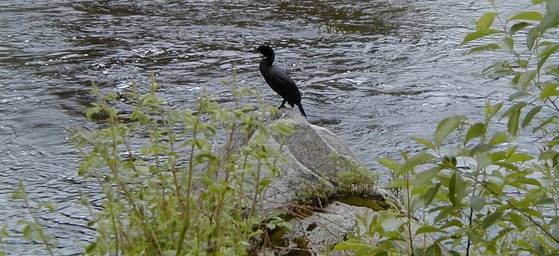
Saugus Iron Works National Historic Site preserves the cultural and natural history of the first successfully integrated manufacturing facility for the production of cast and wrought iron in North America. The historic structures of the Iron Works are nestled along the banks of the Saugus River, an important natural resource for newly-settled families and workers to the area during the 17th century. The Saugus River and Turning Basin are fundamental features of the historic landscape. The tidally influenced river is a natural resource for the wide variety of plants, animals, and other organisms that depend on the river, riparian woodlands, and surrounding marshes as an important habitat. Saugus Iron Works National Historic Site has high biodiversity. The site contains over two hundred species of plants, 74 species of birds, 11 species of mammals, 4 species of reptiles and amphibians, and at least 11 species of fish. Despite the small size of Saugus Iron Works, the river and other resources support numerous and interesting species that can be seen by visitors. The Northeast Temperate Network, part of the National Park Service's Inventory and Monitoring program, is active at Saugus Iron Works National Historic Site. Follow the links below to learn more about the Inventory and Monitoring Program, and specifically about the work being done here at Saugus. The National Park Service Inventory and Monitoring Program Inventory and Monitoring at Saugus Iron Works National Historic Site |
Last updated: July 9, 2016
